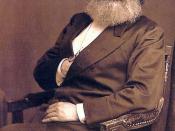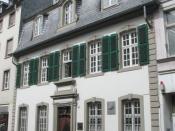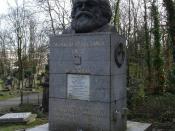Without the industrial revolution, our entire population would be living laborious, impoverished, pitiful lives. The industrial revolution was characterized by the agricultural revolution before it and the class tensions brought by it. Many have identified the industrial revolution as a mixed blessing, even though some of our simplest technology has come from the industrial revolution. Even the communist Karl Marx affected the industrial revolutionAccording to Steve Kreis's Lecture 17, "Man was going somewhere, his life had direction." The agricultural revolution planted the seeds for the industrial revolution. The first "seed" is the enclosure movement. Wealthy landowners in Great Britain bought up all the land and rented it out to small farmers. Eventually, people began to experiment to find better farming methods. One of those methods was the seed drill invented by Jethro Tull. The drill improved efficiency and decreased waste. Crop rotation is the second "seed". One year a farmer would plant wheat on filed and the next year plant turnips or clover to restore the field.
The field would also spend a year as a fallow, or empty, field. The third "seed" is improved livestock. Farmers started to allow only the best animals to procreate. This caused the animals to double and sometimes triple in size. The key "seed" was the way all the "seeds" affected the population. The people had improved health because the food they were growing was healthier. The enclosure movement also forced small landowners off their land. They all crowded into to cities for the better-paying factory jobs.
Class tensions were a large part of how the revolution played out. Around the same time that farmer started moving to cities, Unions started to form. Unions are organizations that bargain for higher wages and better working conditions. If a factory owner refused to honor the demand...


